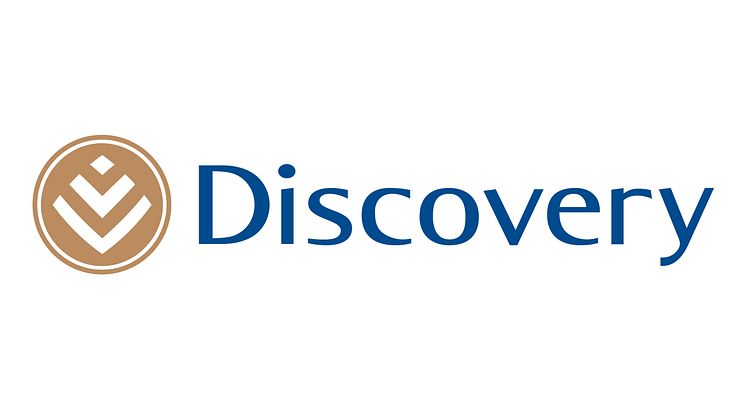
Press release -
SADC Health Ministers endorse Discovery Health’s fourth bottom line strategy
SADC Health Ministers endorse Discovery Health’s fourth bottom line strategy
Discovery Health’s fourth bottom line strategy was on 15 January 2015 endorsed by health ministers of the Southern African Development Community (SADC) at a key conference held in Victoria Falls, Zimbabwe. This strategy takes into account the impact of employee wellness on company performance and profit and integrates health reporting into companies’ statutory reports.
On 14 January, SADC health ministers and healthcare leaders met to pave a way to increase their programmatic efforts and discuss coordinated action to eliminate malaria and TB in Southern Africa by 2025. The forum saw public and industry leaders in their talks call for both traditional and innovative approaches to tackle health problems, with Discovery Health invited as part of the SADC Private Sector Constituency to share their insights – which were popularly endorsed for potential adoption across the SADC.
“Discovery has millions of terabytes worth of health data and this privilege has enabled us to make interpretations and innovative solutions that address some of healthcare’s long term challenges. Studies from this data are always in a position to assist in reducing healthcare problems in the SADC and we are honored to be invited to share this,” says Brett Tromp, Chief Financial Officer for Discovery Health.
Hosted by SADC Chairperson and Minister of Health and Childcare for Zimbabwe, Hon. David Parirenyatwa – and supported by the International Organisation on Migration (IOM), the Global Fund to Fight AIDS, TB and Malaria. The parties involved also addressed the importance of commitments for increased domestic funding to accelerate the pace of malaria and TB elimination agenda.
Tromp presented a compelling case for integration of corporate health reporting into statutory reporting in order to encourage increased employee health engagement.
According to various research studies, diseases of lifestyle play a significant role in employee illness, increased absenteeism, and presenteeism, as well as reduced morale. This has shown to have an impact on the organisation’s bottom line and the economy.
Tromp says, “the average employee takes eight days of sick leave annually, costing employers about R10 000 a year. It has also been demonstrated that work absenteeism costs the South African economy an average R16 billion a year. Given that the economy is experiencing challenges, keeping workers healthy should be a priority.”
Supporting this, a Discovery initiative linking measurable health and productivity data using approximately 5 000 life years over the period 2009 to 2012 found a statistically significant link between the immediate productivity of employees and their health. A study of call centre staff showed that that non-smokers performed better than smokers and their risk of error was lower.
Successful businesses today understand the strategic value of reporting on non-financial measures. Research by Discovery’s Vitality Institute in the US indicates that companies should reassess the worth of measuring and accurately reporting on workforce health, especially as health metrics in corporate reporting are becoming a global priority. In 2014, the institute convened a working group of global business leaders to propose the development and implementation of comprehensive health metrics by the end of this year. The goal is to establish workforce health metrics as an integral indicator of overall organisational performance within the broader corporate accountability framework by 2020.
Their recommended principles to follow in selecting the number of health metrics are materiality; meaning the principle that each metric should have a significant impact on the health of employees and on the financial bottom line of a business, measurability; referring to the ease of measuring each metric across whole employee populations in organisations of all sizes, and lastly, understandability; meaning that each metric should be clear and understandable to employees and non-health professionals.
“Making wellness central to business strategy opens an important new avenue to increasing organisational effectiveness, while at the same time offering opportunities to avoid an ill workforce affecting economic performance. As such, Discovery has welcomed the opportunity to have presented on the fourth bottom line at the Health Ministers meeting. As of this morning, the SADC Health Ministers in principle have endorsed the notion of Fourth Bottom Line Reporting and a task team will be mandated to craft an approach through which all SADC member states can be encouraged and guided on how to go about promoting this in their countries.” adds Tromp.
This integration aims to build leadership and advocacy both within the organisation and externally. At the same time, it enables investors and related key stakeholders to consider the health of employees as a critical data point for decision making. Fourth bottom line reporting will also place increased pressure on companies to consider employee health as a critical component of business strategy, which would enable them to realise core strategic goals.
At the post-conference breakfast today, Aaron Motsoaledi, Minister of Health for South Africa, proposed to the conference a four action pillar approach which, among other objectives, calls for formal establishment of a public-private partnership and a Task Team. The partnership will be aimed at strengthening the relationship between government and the private sector in the region.
Prof Sheila Tlou, UNAids Regional Director of Eastern and Southern Africa will be leading the ministerial task team that will, among other programmes, drive the adoption of Discovery Health’s fourth bottom line reporting strategy. The team’s mandate will include developing an approach through which all SADC member states can be encouraged and guided on how to go about promoting this in their countries with feedback expected in mid-2015.
Topics
Discovery information
About Discovery Limited
Discovery Limited is a South African-founded financial services organisation that operates in the healthcare, life assurance, short-term insurance, savings and investment products and wellness markets. Founded in 1992 by the current Group Chief Executive Officer Adrian Gore, Discovery was guided by a clear core purpose – to make people healthier and to enhance and protect their lives. Underpinning this core purpose is the belief that through innovation Discovery can be a powerful market disruptor.
The company, with headquarters in Johannesburg, South Africa, has expanded its operations globally and currently serves over seven million clients across South Africa, the United Kingdom, the United States, China and Singapore. Vitality, Discovery’s wellness programme, is the world’s largest scientific, incentive-based wellness solution for individuals and corporates. The global Vitality membership base now exceeds 5.5 million lives in five markets.
Discovery is an authorised financial services provider. It trades on the Johannesburg Securities Exchange under the code “DSY”.
Follow us on Twitter @Discovery_SA







